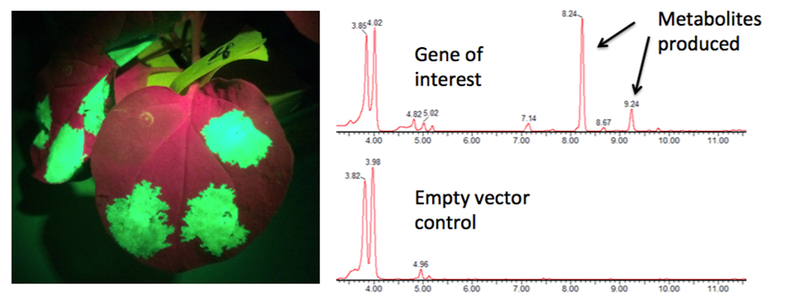Brief description of cacao research by Ben Knollenberg as part of the Guiltinan Lab.
Disease pressure is a major limitation to cacao production, affecting the livelihoods of millions of smallholder farmers worldwide. Some of the most devastating pathogens of cacao are in the genus Phytophthora. In order to develop cacao varieties with increased resistance to Phytophtora spp., it would be beneficial to breeders to understand the mechanisms by which cacao fights off attack by these oomycete pathogens.
Plants produce thousands of secondary metabolites to cope with stresses in their environment, including disease pressure. A major goal of my project is to identify which secondary metabolites produced by cacao provide protection to Phytophthora spp., and which genes are involved in the production of these molecules. Taking advantage of Penn State's cacao diversity collection, which contains varieties ranging from highly susceptible to highly resistant to Phytophthora pathogens, I'll use metabolomics to identify the molecules most strongly correlated to disease resistance. I've also begun gene functional characterization of the entire chalcone synthase and stilbene synthase gene family, which has previously been implicated in disease resistance by transcriptome analysis of infected cacao plants.
In addition to my main project, I'm also working on the development of vectors for the regeneration of CRISPR/Cas9 genome-edited cacao plants, which will aid in gene functional characterization.

Figure: Transient expression of cacao genes implicated in disease response in the model species Nicotiana benthamiana with GFP reporter gene (left). HPLC analysis to determine the metabolites produced by expressing said gene (right).

